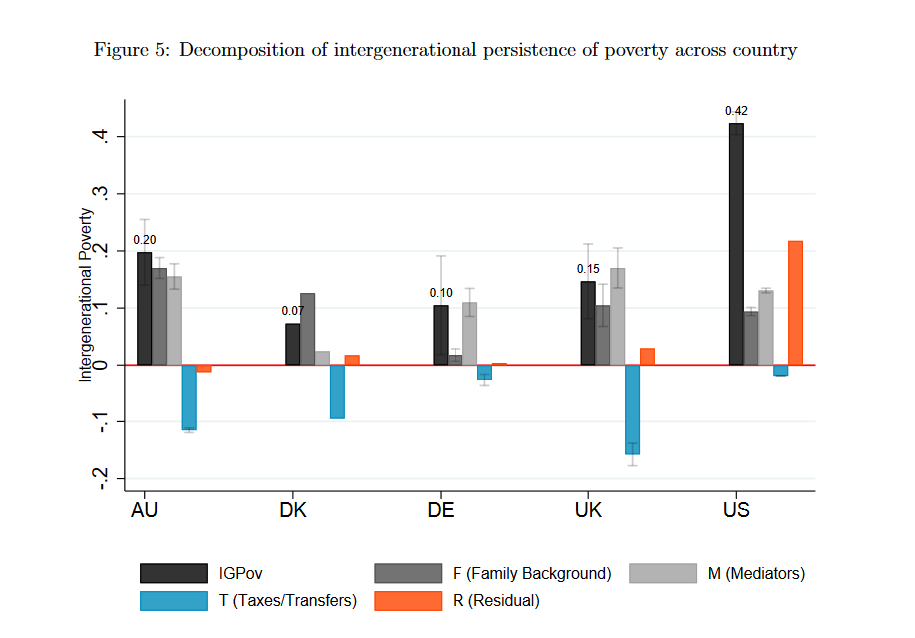Poor children are more likely to become poor adults, but less so in some countries compared to others. A new IZA discussion paper by Zachary Parolin, Rafael Pintro Schmitt, Gøsta Esping-Andersen and Peter Fallesen investigates cross-national differences in how experiencing poverty as a child leads to higher likelihood of poverty in adulthood.
Comparing the U.S., UK, Australia, Germany, and Denmark, the authors find that intergenerational poverty in the U.S. is four times stronger than in Denmark and Germany, and twice as strong as in Australia and the UK. Specifically, spending one’s entire childhood in poverty in the U.S. is associated with a 42 percentage point increase in the mean poverty rate in early adulthood (ages 25 to 35).

The comparatively high poverty persistence in the U.S. is not channeled through characteristics of the families in which poor children grew up, differential access to higher education, neighborhood effects, or racial/ethnic discrimination. Instead, the American welfare state does less than peer countries to reduce the disadvantages of having lower education or being jobless in adulthood.
The study’s authors emphasize the significant implications for promoting upward mobility from poverty. They contend that if the U.S. were to adopt a more generous welfare state approach akin to that of the United Kingdom, the persistence of intergenerational poverty could decrease by over one-third.
